Libya and its prospects for success and democracy, as assessed by the author’s personal in-theatre experience.
Evaluating Libya’s prospects is no easy task. Though Libya is a wealthy country (oil rich and with a tiny population of 6mn), decades of corruption, mismanagement and political tyranny mean that Libyans are nevertheless, a poor people who clearly feel their time has come: We got rid of Gaddafi, now where’s our cake? For some, like my mini-bus driver, the cake is being squirreled away: “We’ll get crumbs as usual” was the remark he threw over his shoulder while avoiding yet another slow moving, but definitely unswerving, vehicle.
Yet I couldn’t help noticing the jauntiness of the reply: This was a quip, a verbal elbow in the ribs that denoted more complicity than cynicism. In Libya, the latter is, refreshingly, in short supply.
Generation MMXI
In the Corinthia Hotel in Tripoli, the fountains are still, the restaurants are mostly shut and the staff mostly absent. Yet in the basement the spa is working, the café in the lobby is packed with businessmen (local as well as foreign) and NGOs, of every possible hue and commitment, are abundant. Downstairs, the conference rooms are buzzing with groups of young emerging leaders debating constitutional issues, and taking on an elderly elite slightly cowed by the realisation that while they may hold the reigns of the transition, it is the young men and women haranguing them who brought the change they had failed to usher in for over 40 years.
Speaking to Mahmoud Jibril, the embattled but rather resolutely resilient former leader of the National Transitional Council (NTC), is a further lesson in generational humility (in a region that’s not known for it): ‘It’s their blood that was spilt, not ours,’ he says to me. ’And we have to include them, work with them, not only because they are 67% of the population, but because they are the victorious generation and we are the defeated one.’
While acknowledging the hardship (torture, prison, intimidation) that befell many from his generation, he manages to depict a situation in which the TNC and others are no more than the ‘care-takers of politics’, as the next cohort develops the necessary capacities to govern and lead.
And there aren’t enough words to convey how urgent he thinks it is that they get up to speed. Nor how frustrated he is with an NTC that is failing to deliver on the basics (security and social services), when all the while, as he puts it, ‘people’s expectations are rising by the minute’. His frustration is such in fact that last month he formed the National Coalition; a group of parties, organisations and NGOs designed on the one hand to fill what he sees as Libya’s increasingly dangerous power vacuum and on the other, to help design institutions.
One of the most striking things about Libya is just how much there is to be done — or, perhaps more to the point, just how little Gaddafi left behind. Libya isn’t just looking for government: It is looking for the basics of statehood. From the constitution to the electoral laws, from municipal services to the tourism industry, from a healthcare system to a responsible and efficient oil industry (on which much of the former hinges) — everything needs to be created from scratch.
Apeculiar kind of loneliness
Libya is nothing like what one imagines. In part, because no one has imagined much at all beyond Gaddafi for years and, now that he’s gone, there is a need to unravel what the story of Libya might be. And unraveling the story hinges on capturing the in-between-ness of the place. The symbols, codes and myths that allow places to defy categorisation may remain knowable to us — by analogy, by affection, or by slow revelation. This is always the case; but in Libya, the notion of in-between-ness seems a particularly important one: All at once African and Middle Eastern, with deep ties to its once-coloniser across the Mediterranean, Libya feels strangely familiar and yet impossibly remote.
In a place isolated for so long, every sentence calls for comparison, a slightly desultory attempt at ideological and political mooring in the face of generalised ignorance about a country known only for its leader and more recently his overthrow. As a result, the conversations tend to contain ceaseless references to what Libya is not—not Egypt, first and foremost, because a tiny, oil-rich population, a violent revolution and a completely underdeveloped state and public infrastructure mean that the country has many more potential assets, but also much more to build (and quickly). With respect to wealth, while it may have the potential of a Dubai, it is a long way from glass towers and Rolls Royce dealerships.
And yet it is not Syria, because despite the violence, as they keep reminding you, they ‘got their bastard’ relatively quickly with a bit of help. One comparison that strikes visitors is with Beirut after the war—rubble, rough roads and the most magnificent coastline that hints at the possibility of a dolce vita of corniches and cafes in the bright Mediterranean light.
This sense of in-between-ness is constantly reinforced by the stories and remnants of a regime that is itself mysteriously opaque in its complexity: A strange and undecipherable mix of violence, intimidation and the just plain ridiculous. Insults to injury indeed.
Terror, familiarity, and embarrassment
Landing at the decrepit Tripoli International Airport immediately brings into almost palpable relief the peculiar kind of loneliness created by this loathsome yet complex leader: One who toured the world like a rock star (complete with flamboyant entourage and even more flamboyant accommodation requirements), and yet oversaw the almost complete isolation of Libyans from the rest of the world. Including, I quickly realised, from the Arab world, which seems as puzzled by this neighbour as everyone else is.
The result is a jumble of stories that capture the regime’s bizarre duality: A complex mix of terror and familiarity. Despite the international hype Gaddafi sought, and the handful of towering hotels that bear testimony to his penchant for parties with a select crowd of international groupies, one of the most striking things about Tripoli is the almost complete absence of ostentation. The city bears none of the hallmarks of the typical tyrant: No palaces, no monuments to the greater glory of the leader; a couple of over-sized villas, but none of the requisite ghastly murals, giant statues or dictatorial paraphernalia. While Tripoli has the charm and exoticism of an abandoned 1950s Mediterranean town, the overall impression is one of arrested development as well.
The stories told and retold like exorcisms around the various dinner tables and coffee shops reflect this odd mix. The ones about savage cruelty and violence (the horrific massacre at Abu Salim prison in 1996, or the midnight raids or the lugubrious graves of murdered protesters against the regime prominently displayed as warnings), all of these co-exist with a very different kind of tale: Those about ‘the time’ he levied a small extra tax on every Libyan for a few months in order to pay for his son’s huge wedding. Or ‘the time’ he promised them each $10,000 as their share of the oil revenues…that he would ‘keep for them’ in bags bearing each of their names; or ‘the one about’ the female bodyguards, or the fancy slipper acrobatics. And of course the outrageous but faintly ridiculous statements made towards the end when their own leader promised to hunt them down ‘like rats, alleyway, by alleyway.’
That last story echoes as the delighted battle-cry of kids in the street who chase each other down the narrow passages yelling ‘zenga, zenga’ (Arabic for alleyway) laughing and screaming at the top of their lungs.
The way these stories are told reflect a strange mix of emotion: Relief after terror, but also, interestingly, deep embarrassment. The tone is reminiscent of the way in which Italians talk about Berlusconi. No hint of pity, but certainly someone remembered with embarrassed cringing as well as hatred in almost equal parts.
The roots of subversion
The stories people tell offer a glimpse of the political and social landscape of Libya – but it is what’s on the walls of the city that holds a key set of hints about the resilience of Libya and the roots of both subversion and its likely success.
The street cartoons are testimony to this very particular relationship. Of course, right across the Arab World, from Gaza to Casa, graffiti are part of everyday political life, and the revolutions in Egypt, Tunisia and Libya saw the walls of the main cities come alive with street art. But there is a different kind of drawing in Tripoli — cartoons of a very specific type that smack of teen comic books or the Italian tradition of ‘fumetti’ and tell this tale of a hated but proximate leader.
Elaborate as they are, they are cartoon caricatures of the ‘great man’: Gaddafi dressed as a woman; Gaddafi as a fly with his big glasses hovering over a turd; Gaddafi as a chicken being pursued by a man with an axe. Most of them practically sing out ‘bong’, ‘bzzz’, ‘whack’, ‘oomph’ as he gets a boot up the back-side or bounces off the ground (complete with bouncy lines) as a bat comes crashing down on his head. The cartoons bring to mind the adventures of Wile E Coyote rather than those of Mugabe, Pinochet or Mubarak. And the subversion and satire of Rabelais (scatological, sexist, highlighting the freakish rather than the scary); an upending of the established order in ways that, again, bring to mind a deeply Mediterranean culture.
This in no way diminishes the harshness and violence of the regime, but it is noteworthy in what it says about Libya’s capacity to bounce back and the kind of cultural and social resources it has — and will use — to re-invent itself.
So while it’s clear that Libya’s oil resources will play a key role in its development, some of the best indicators of potential stability and success can be found in its every day social and cultural codes: The relative absence of obsequiousness and of pomp, people’s capacity (so soon after a revolution that left 60,000 dead) to integrate various types of stories into a set of tales and cartoons that speak of mockery, relief, victory and confidence. It is what one of the young people I spoke to put quite eloquently, ‘we, the people, we are the real oil of Libya’.
From codes to institutions
But what does this tell us about the institutional transformations to come? First off, the stories and the ways in which they are being told, brush a picture of a place where retaliation and vengeance are not a part of the current discourse. The desire to move forward with little settling of accounts, the creation of a past that is borne with mockery and regret but little bitterness, sets the scene for a kind of institution building that can accommodate both current aspirations as well as lessons learnt. A model, in other words, that may well tend towards inclusion.
An immediate result for instance is the manner in which Saif al-Islam’s (Gaddafi’s second son) trial is being prepared. Symbolic as it might be, he will be awaiting trial in a purpose built security prison. Procedures, even in dealing with the immediate past, seem to matter.
That apparent treatment of the past also says something about the vertigo that many in Libya experience when they contemplate the task at hand. Fundamentally, the main challenge is that of the (almost) clean slate. No system to shore up or dismantle or reform. Just the need to create a whole new system from scratch. The desire not to annihilate what little past there is, seems, in part, to stem from the need to relate to what little legacy is there. And possibly to create shared stories in a country that is struggling to emerge as a nation.
The realisation that Libya doesn’t quite exist as a nation dawns quickly. Aside from the three traditional regions of Libya (Tripolitania, Fezzan and Cyrenaica), the status and role of Libya’s non-capital cities like Benghazi, Misrata, or Sirte — especially after their contributions to the revolutionary fighting — is the main underlying influence in politics, tied as they are to cultural and tribal differences that have never been eradicated.
As such, one of the main challenges for the next government is to find a way to create a unitary Libya in the aftermath of an authoritarian regime that suppressed these fundamental fault-lines, but that was overthrown by a revolutionary upheaval that drew on these very localities and their respective sense of entitlement for strength. The revolution created a Free Libya, but it’s not far off the truth to say that it was cities that created the revolution. But if the National Coalition and Jibril have their way and equal representation is accorded to the three regions, a unitary state decentralised around strong municipalities might be in the offing, despite talk of a break-up.
And then there is the other conversation — the democratic version of the chicken and egg dilemma: Which came first, elections or constitutions? It is the talk of every café and dinner, every newspaper and gathering. Elections are due to be held in June, so the task is urgent.
But, as Tripoli draws a kind of lively resilience from the cultural codes on its crumbing walls and from conversations over coffee and ice cream, it seems sure to me that, somehow, the resources are there that will allow such paradox and juxtaposition to result not so much in resolution as in revelry.
The views expressed in this article are the author's own and do not necessarily reflect Fair Observer’s editorial policy.
*[This report was originally published by Counterpoint.]
Support Fair Observer
We rely on your support for our independence, diversity and quality.
For more than 10 years, Fair Observer has been free, fair and independent. No billionaire owns us, no advertisers control us. We are a reader-supported nonprofit. Unlike many other publications, we keep our content free for readers regardless of where they live or whether they can afford to pay. We have no paywalls and no ads.
In the post-truth era of fake news, echo chambers and filter bubbles, we publish a plurality of perspectives from around the world. Anyone can publish with us, but everyone goes through a rigorous editorial process. So, you get fact-checked, well-reasoned content instead of noise.
We publish 2,500+ voices from 90+ countries. We also conduct education and training programs
on subjects ranging from digital media and journalism to writing and critical thinking. This
doesn’t come cheap. Servers, editors, trainers and web developers cost
money.
Please consider supporting us on a regular basis as a recurring donor or a
sustaining member.
Will you support FO’s journalism?
We rely on your support for our independence, diversity and quality.



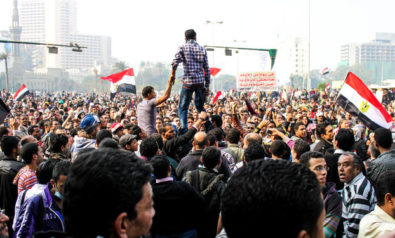
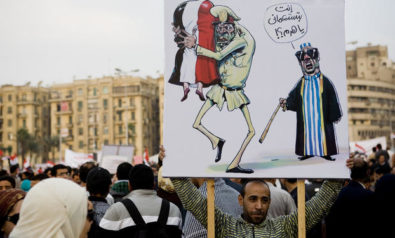
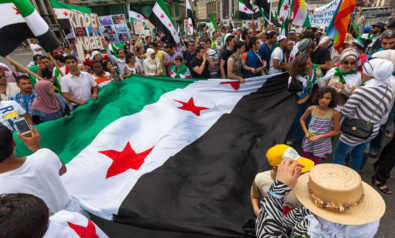
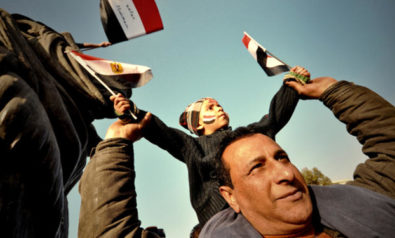
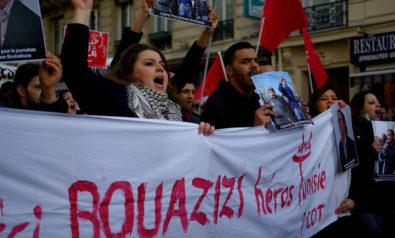
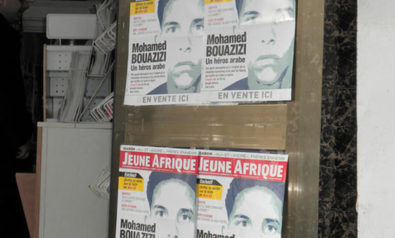
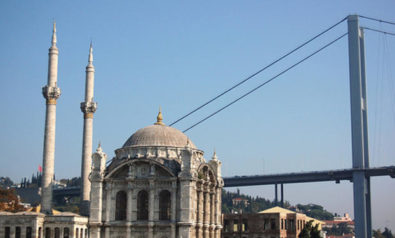
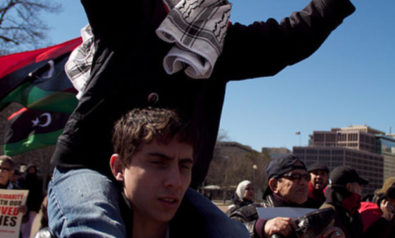

Comment